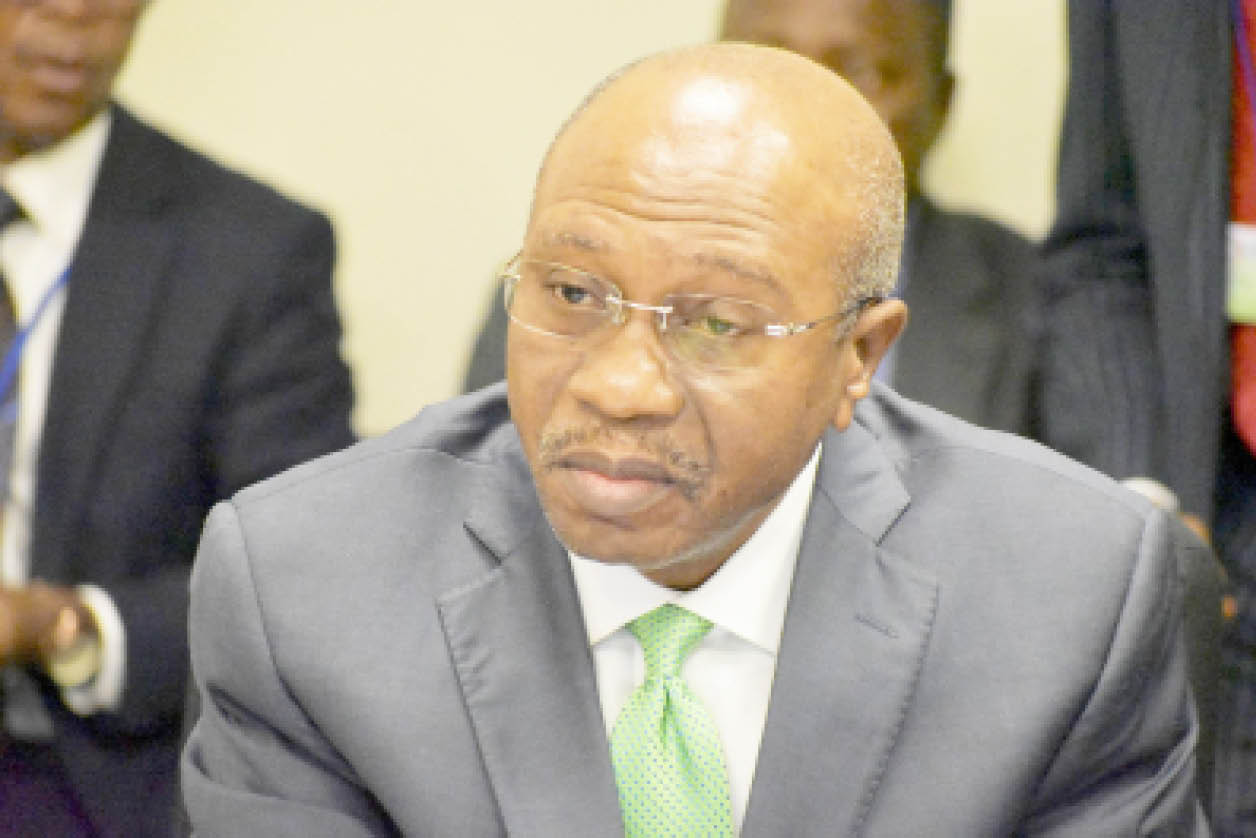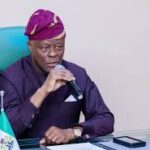The governor of the Central Bank of Nigeria, Godwin Emefiele, has tasked leaders of the Nigerian banking sector to brainstorm expansively on ways to resolve the shortage of foreign exchange in the country.
Emefiele, who spoke at the 13th annual Bankers’ Committee Retreat in Lagos, emphasised the urgent need to develop the non-oil sector, lamenting that foreign exchange receipt from crude oil sales has dried up from above $3bn monthly in 2014 to an absolute zero dollars.
“There is clear shortage of foreign exchange today. But yet as Bankers, we must meet the needs of our customers. Market is tight. And I know we don’t have a choice; we will have to do something to ensure that this problem is solved. That is the reason we decided that this retreat must focus on RT200 essentially.
“How do we begin to think about how to source foreign exchange for our customers’ import needs without necessarily depending on revenue from crude, which like you all know has come to almost zero compared to almost about $3bn monthly that we’re getting in 2014,” he said.
- How fertiliser, poor roads hinder prospects of grain farmers
- Ekiti Assembly: Relative peace as impeached speaker insists on litigation
Recognising the hindrances of high inflation and foreign exchange shortages on the achievement of national development goals, Emefiele said the 2022 Retreat with the theme “Increasing the Productive Base of the Nigerian Economy and Non-Oil Export Revenues,” was convened to focus on the development of the local manufacturing industry and non-oil sectors, more broadly, and particularly to enhance the sector’s capacity to generate foreign exchange inflows.
He said the focus is even more germane considering the enormity of the global economic turbulence, as wave after wave of negative shocks continue to ravage many countries.
He said since the last retreat, the expected recovery of the global economy from the Covid-19 shock had been wiped away and replaced by new shocks from the Russian-Ukraine war and the unprecedented stalling of the Chinese economy.
“Aside the social costs of these, in terms of its attendant despair, destruction, and destitution, they heralded new economic challenges as energy crisis, cost-of-living crisis, macroeconomic crisis, and climate crisis continue to ravage the world and undermine policy efforts of nations. These strong headwinds have retarded growth momentum, worsened global conditions, amplified risks and uncertainties, and dampened global outlook. Accordingly, and like many other countries, Nigeria’s GDP growth fell gradually from 5.03 percent in 2021q2 to 3.98 percent in 2021q4, 3.54 percent in 2022q2 and 2.25 percent in 2022q3,” he said.
While acknowledging the collaborative programmes and initiatives of the Bankers’ Committee to deliver tangible contributions to the nation’s economic prosperity, he said the RT200 programme was launched in February 2022 to stimulate non-oil exports with a $200bn foreign exchange income target in three to five years.
Noting that the initiative has been widely accepted and driven by the institutions that constitute the Bankers’ Committee, he said the retreat provided an opportunity to review the progress of RT200, re-examine support for other government programmes to promote non-oil export and to identify specific implementable actions by the financial system to enhance foreign exchange revenues
“We can no longer delay in resolving the structural issues inhibiting non-oil export receipts. We must strengthen the immunity and engender the resilience of our economy against exogenous shocks,” he charged.
On his part, Lagos State Governor Babajide Sanwo-Olu, said the recent global issues such as COVID-19 pandemic and the Russia-Ukraine war had led to energy crisis, food insecurity and others in many nations including Nigeria.
He, however, charged participants at the retreat to reflect on how Nigeria can tackle her local issue with a global view, stressing that it is important to come up with policies that will affect the common man on the street.
FG urged to focus more on diversification
Dr Austin Nweze, an economist with the Lagos Business School, said this development should compel the Nigerian government to be more focused on the plan for the diversification of the economy away from oil.
“We need to begin to produce and export other goods and services. It’s when you produce and export that you earn dollars,” Nweze told Daily Trust Saturday yesterday.
He suggested that receipts from such exports be channeled through the Central Bank for accountability,
The economist noted that Nigeria’s foreign exchange earnings had depended on the tripod of oil, NIMASA and the Customs. With oil dollars now drying up, he said the focus should be on the other two departments.
Oil theft blamed
But a financial analyst familiar with the developments blamed this situation on oil theft that has cut the country’s oil exports significantly. “The naira is no longer a petro-dollar currency. It used to be but not anymore. Every other country is booming now except Nigeria,” he said.
He also blamed this on fact that the NNPCL has used its oil revenue to service loans it raised to repair it four refineries that have been comatose for years.
The refineries, located in Port Harcourt, Kaduna and Warri have a combined capacity to refine 445,000 barrel of crude oil per day, but have been redundant for many years, as a result of which Nigeria depends on imported refined petroleum products.
From Abiodun Alade & Vincent Nwanma, Lagos

 Join Daily Trust WhatsApp Community For Quick Access To News and Happenings Around You.
Join Daily Trust WhatsApp Community For Quick Access To News and Happenings Around You.


